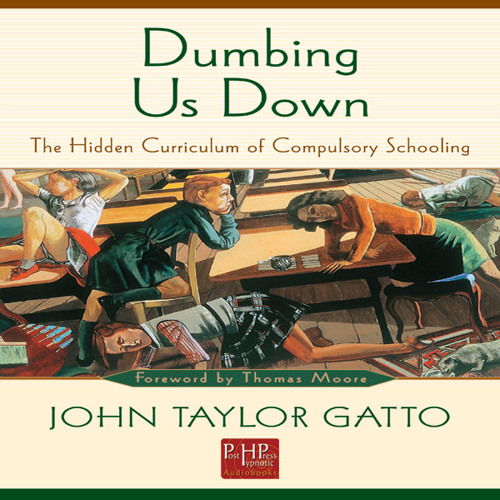
Things were so much better for education in 17th colonial Massachusetts where people had their own relationship with God and had to find their own truths. And it's part of an implied conspiracy, which started after the Civil War, with the purpose of indoctrinating children by separating them from their communities and families and imposing systems of networks in place of community, with the ultimate goal of imposing centralized societal control. In a nutshell his thesis is the public school system produces conformist non-thinkers. Gatto spent a few decades as a NYC public school teacher, so in theory he should have interesting ideas about what's wrong with education and how to address the problems, but in practice, he doesn't. I checked this book out after a friend recommended John Taylor Gatto to me after an argument on a Facebook thread that started with a post about how we seem to be producing people who have contempt for science and reason. He has a few good points within the book, but I'm disappointed that what is supposed to be an intellectual argument relies so heavily on sensational, fact less claims and overgeneralizations. How, then, does my life where both husband and wife work but kiddo spends all day with grandma and grandpa fit into that equation? Really? Every single one of your students? How do you know that? He also said that double-income families are ruining our children, along with the lack of inter-generational interaction. ALL his students watch too much TV and it's ruining them.

It also bothered me that he made such generalized, sensational statements. And there are as many different school environments are there are different schools in the country. Those are two completely different worlds.

I have a hard time believing that a New York City educator understands ANYTHING about the kind of education I had - in rural Montana, where we had one school district for our entire town (and the ranch and reservation kids were bused in) and I graduated with 83 people. I also have a problem with someone who spent his whole career in New York school systems making broad sweeping statements about public education in general. (Like maybe we're not bright enough to follow along with typical 12 point print?)

And I had to laugh when I opened the book and the print was freaking 18 point. First of all, it's not so much a book as a group of essays.


 0 kommentar(er)
0 kommentar(er)
